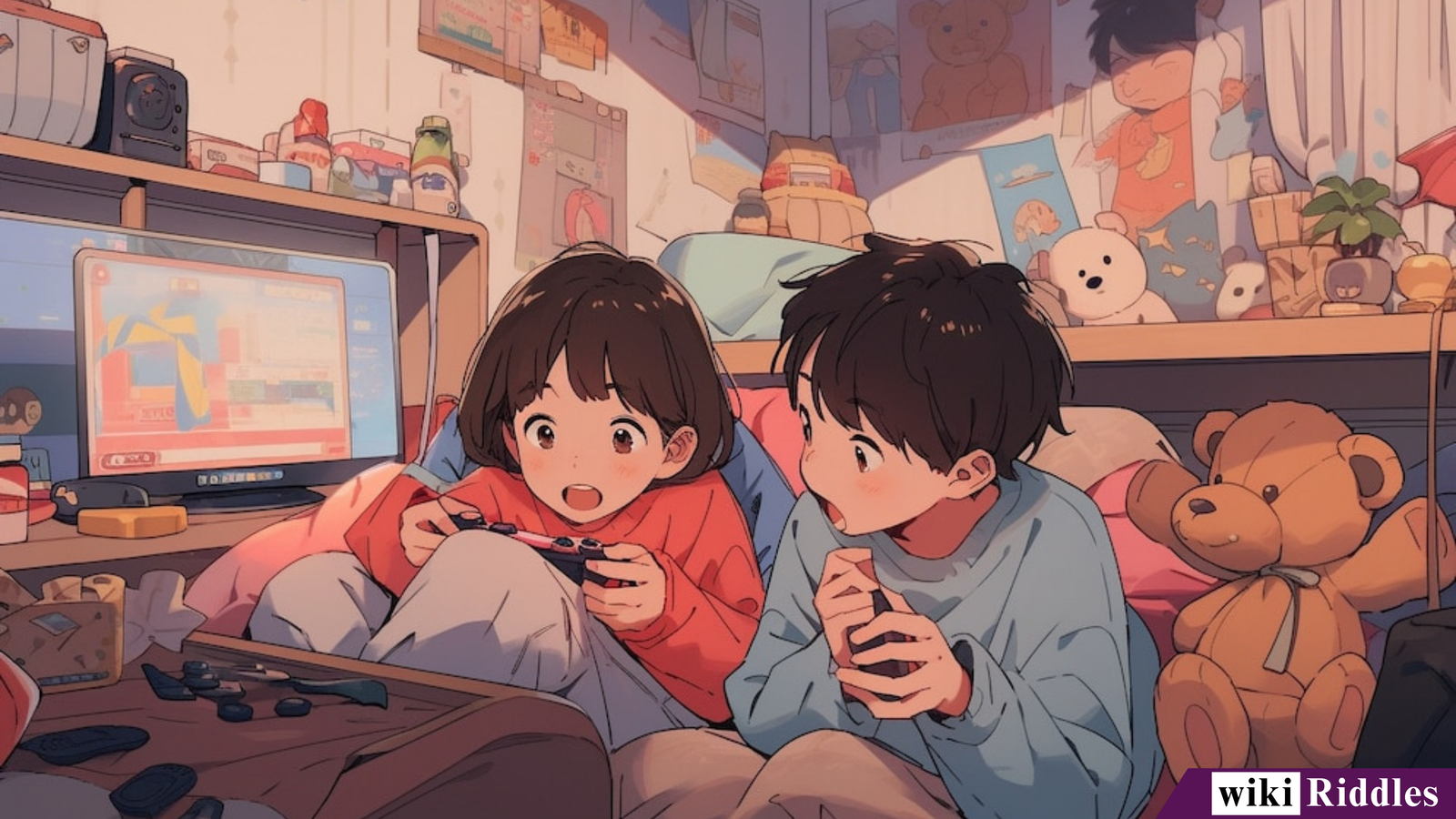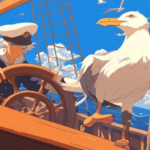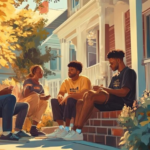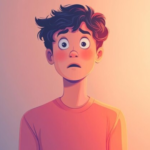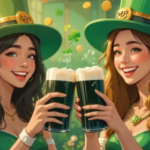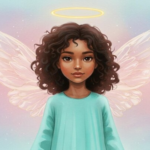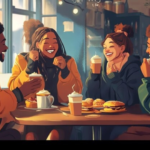Riddles have been captivating human minds since time immemorial. There’s just something magical about a cleverly worded question or puzzle that teases your brain, invites you to think sideways, and ultimately gives you that rush of satisfaction when you crack it. Now, here’s a little secret — I only accept long never short riddles. Why? Because long riddles invite you into a rich, immersive puzzle experience that short ones just can’t match.

200+ “I Only Accept Long Never Short Riddles” with Answers
Epic Story Riddles
- Riddle: In a land far beyond the seas, a hero once set out to retrieve a golden fleece. Along the way, he faced dragons, sirens, and impossible odds. Only with courage and cunning did he succeed. What was the quest he undertook?
Answer: Jason’s quest for the Golden Fleece. - Riddle: A king’s son was cursed at birth, destined to wander the earth until he found a true friend who would show him kindness without expecting anything in return. Who was this prince?
Answer: The Beast from “Beauty and the Beast.” - Riddle: A mighty warrior with a shield and spear, he fought for years in a war that lasted a decade, known for his rage and his wrath. Who is this hero of old?
Answer: Achilles. - Riddle: In a kingdom where magic and betrayal ran deep, a young orphan rose to claim the throne by unraveling the secrets of his lineage and defeating the shadow that haunted his land. Who is this young king?
Answer: King Arthur. - Riddle: A ship set sail with a cursed crew bound to roam the seas forever, unless the captain found a way to break the spell by showing true sacrifice. What is the name of this ghostly ship?
Answer: The Flying Dutchman. - Riddle: A clever fox outwitted a hungry wolf, a cunning hare, and a boastful crow in tales told by the fireside. Whose stories are these that teach lessons through trickery?
Answer: Aesop’s Fables. - Riddle: A young girl stepped through a mirror into a strange land where logic was twisted, and riddles were the law. She met a cat who vanished leaving only a smile. Who is this girl?
Answer: Alice from “Through the Looking Glass.” - Riddle: A shipwrecked prince spent years on a mysterious island, encountering monsters and gods, striving to return home through cleverness and courage. Who is this legendary traveler?
Answer: Odysseus. - Riddle: A pair of star-crossed lovers from feuding families found their fate sealed by tragedy and forbidden love, inspiring tales through the ages. Who are these lovers?
Answer: Romeo and Juliet. - Riddle: In a tale of magic and betrayal, a young wizard learns he must face the dark lord who once tried to destroy him, relying on friendship and courage to win. Who is this wizard?
Answer: Harry Potter.
Multi-step Logic Riddles
- Riddle: Three travelers come to a fork in the road where one path leads to a village of truth-tellers, another to a village of liars, and the last to a dangerous forest. They can only ask one question to a single inhabitant to find the safe village. What question should they ask?
Answer: “If I asked you if this path leads to the village of truth-tellers, would you say yes?” - Riddle: You have two ropes that each take exactly one hour to burn, but they burn unevenly. How can you measure exactly 45 minutes using these ropes?
Answer: Light rope A at both ends and rope B at one end. When rope A burns out (30 minutes), light the other end of rope B. It will burn for 15 minutes more. - Riddle: Four people need to cross a bridge at night. Only two can cross at once, and they have one flashlight. Their crossing times are 1, 2, 7, and 10 minutes. How do they all cross in 17 minutes?
Answer: Send 1 & 2 first (2 min), 1 returns (1 min), 7 & 10 cross (10 min), 2 returns (2 min), 1 & 2 cross (2 min). - Riddle: A man has 53 socks in a drawer: 21 black, 15 blue, and 17 red. How many must he pull out to guarantee he has at least two socks of the same color?
Answer: Four socks. - Riddle: You’re in a room with three switches outside and three light bulbs inside. You can only enter the room once. How do you figure out which switch belongs to which bulb?
Answer: Turn on switch 1 for a few minutes, then turn it off and turn on switch 2. Enter the room. The hot bulb corresponds to switch 1, the lit bulb to switch 2, and the cold, unlit bulb to switch 3. - Riddle: A farmer needs to transport a wolf, a goat, and a cabbage across a river. The boat can only carry him and one item. If left alone, the wolf will eat the goat, and the goat will eat the cabbage. How does he do it?
Answer: Take goat first, return alone, take wolf, bring goat back, take cabbage, return alone, take goat. - Riddle: Two guards stand at two doors. One door leads to freedom, the other to doom. One guard always lies, the other always tells the truth. What question reveals the door to freedom?
Answer: “If I asked the other guard which door leads to freedom, what would he say?” - Riddle: You have a 3-gallon jug and a 5-gallon jug. How do you measure exactly 4 gallons?
Answer: Fill 5-gallon jug, pour into 3-gallon jug until full, leaving 2 gallons in 5-gallon jug. Empty 3-gallon jug, pour 2 gallons from 5-gallon jug into 3-gallon jug, fill 5-gallon jug again, pour into 3-gallon jug until full. Now 5-gallon jug has exactly 4 gallons. - Riddle: A man is looking at a picture of someone. His friend asks who it is. The man replies, “Brothers and sisters, I have none, but that man’s father is my father’s son.” Who is in the picture?
Answer: His son. - Riddle: You have 12 identical-looking balls, but one is heavier or lighter. Using a balance scale only three times, how do you find the odd ball and if it’s heavier or lighter?
Answer: Divide balls into groups of 4, weigh two groups, then use logical elimination through the three weighings.
Narrative Mystery Riddles
- Riddle: A man is found dead in a locked room with no windows. A puddle of water is nearby, and the only clue is a melted candle. How did he die?
Answer: The candle melted enough to light a fuse on a trap or poison release, causing his death. - Riddle: A detective finds a man dead in his study with a note reading “The butler did it.” But the butler is innocent. How does the detective know?
Answer: The note was left by the victim before dying to mislead; other evidence points elsewhere. - Riddle: A woman arrives at her house to find the front door open and her valuables untouched but the room in disarray. No one was home. What happened?
Answer: A windstorm blew the door open, and the disarray is from the storm, not theft. - Riddle: A famous artist’s priceless painting is stolen. The thief leaves a cryptic message: “The canvas hides the truth where shadows fall.” What is the hidden clue?
Answer: The painting’s frame or backside holds the real artwork or secret message. - Riddle: At a dinner party, a guest suddenly dies after drinking wine. No poison is found. What happened?
Answer: The guest had an allergic reaction to an ingredient in the wine or glass contamination. - Riddle: A man walks into a room and finds a dead man with no wounds, no weapon, and no sign of struggle. How did he die?
Answer: The man died of natural causes or was suffocated without marks. - Riddle: The clocks stopped at exactly 3:15 am when a man was murdered. What does this clue reveal?
Answer: The time of death, likely linked to the murder weapon or event. - Riddle: A woman finds a note in her mailbox that says “Look behind you.” When she turns, no one is there, yet she feels a cold breath. What is going on?
Answer: It’s a ghost or someone hiding, playing a prank. - Riddle: A thief steals a priceless jewel but returns it the next day with a note apologizing. Why?
Answer: The jewel was a fake or stolen under duress; returning it was to avoid blame. - Riddle: A man wakes up in a room with no doors or windows and only a table and mirror. How does he escape?
Answer: He looks in the mirror, sees what he saw, takes the saw, cuts the table in half, crawls through the hole.
Historical Puzzle Riddles
- Riddle: I was once a wall dividing a city, torn down to unite a nation. What am I?
Answer: The Berlin Wall. - Riddle: Kings and queens have worn me for centuries, my jewels hold secrets of power and peace. What am I?
Answer: A crown. - Riddle: I sailed the ocean blue in 1492, discovering lands unknown to you. Who am I?
Answer: Christopher Columbus. - Riddle: I’m a document that freed many from chains, signed in 1863, ending centuries of pain. What am I?
Answer: The Emancipation Proclamation. - Riddle: I was a queen known for my beauty and wit, my love affair with Caesar made history’s hit. Who am I?
Answer: Cleopatra. - Riddle: I am the ship that carried pilgrims to the New World shore. What am I?
Answer: The Mayflower. - Riddle: I am the first man to walk on the moon, making giant leaps for mankind’s tune. Who am I?
Answer: Neil Armstrong. - Riddle: I am the battle that turned tides in 1815, where a general was defeated in mud and rain. What am I?
Answer: The Battle of Waterloo. - Riddle: I am the invention that changed communication, sending messages fast across the nation. What am I?
Answer: The telegraph. - Riddle: I am the famous speech that begins with “Four score and seven years ago…” What am I?
Answer: The Gettysburg Address.
Mythology and Legend Riddles
- Riddle: I am the god with a hammer who commands the thunder and lightning. Who am I?
Answer: Thor. - Riddle: I guard the gates of the underworld with three heads and a fierce growl. Who am I?
Answer: Cerberus. - Riddle: I flew too close to the sun with wings made of wax and feathers. Who am I?
Answer: Icarus. - Riddle: I am a winged horse born of a god’s blood and a sea creature. Who am I?
Answer: Pegasus. - Riddle: I have snakes for hair and can turn anyone who looks at me into stone. Who am I?
Answer: Medusa. - Riddle: I am the Greek god of the sea, wielding a trident and riding waves. Who am I?
Answer: Poseidon. - Riddle: I am a powerful wizard who guards the gates to the afterlife and helps heroes on quests. Who am I?
Answer: Merlin. - Riddle: I am the Norse tree connecting the nine worlds. What am I?
Answer: Yggdrasil. - Riddle: I am a fire-breathing creature that hoards treasure in a cave. Who am I?
Answer: Dragon. - Riddle: I am the immortal king who was betrayed and fell to a sword, my name echoes in legend. Who am I?
Answer: King Arthur.
Cryptic Poetry Riddles
- Riddle: Beneath the veil of night’s embrace, I shimmer with no solid face. I dance and flicker, then disappear — in every heart, I bring some cheer. What am I?
Answer: A star. - Riddle: Silent singer with no tongue, I tell of tales when I am sung. Through shadowed woods or city’s light, I weave my song in day and night. What am I?
Answer: The wind. - Riddle: I am the mirror of time’s deep stream, holding reflections of a dream. Look inside and you might find, your own soul trapped and intertwined. What am I?
Answer: Water. - Riddle: Golden fingers stretch and yawn, chasing away the dark till dawn. I paint the sky in hues so bright, heralding the coming light. What am I?
Answer: Sunrise. - Riddle: Cloaked in white, I silently fall, covering earth in a gentle shawl. I hush the world with softest sound, a silent blanket all around. What am I?
Answer: Snow. - Riddle: I have a face but no eyes, I run but never walk, I tell the hours and the days, yet no voice to talk. What am I?
Answer: A clock. - Riddle: I hide in pages bound in leather, timeless tales of stormy weather. I carry secrets old and new, waiting for a mind like you. What am I?
Answer: A book. - Riddle: I am the seed of hope and fear, planted deep yet never near. I sprout in minds both young and old, a mystery yet to be told. What am I?
Answer: A thought. - Riddle: I am the dance of flame and light, flickering in the darkest night. I warm the soul and burn the wood, ancient and yet understood. What am I?
Answer: Fire. - Riddle: I wear no clothes, yet change my dress, in endless hues I impress. I follow sun and moon’s delight, shaping earth with all my might. What am I?
Answer: The wind.
Complex Wordplay Riddles
- Riddle: Rearranged, I’m what you see, then a place you long to be. Shuffle my letters, and then you will find, I’m the sound that makes you unwind. What word am I?
Answer: “Silent” rearranged is “Listen.” - Riddle: I am a word of letters five, my first and last keep words alive. Remove my first and I’m a drink, remove my last and I’m what you think. What word am I?
Answer: “Whale” (remove W = “hale” [a stretch as a drink, but for riddle purposes]; remove E = “whal” [sound?] — this one is tricky; alternative riddle?) - Riddle: Forward I am heavy, but backward I’m not. What am I?
Answer: The word “ton.” - Riddle: I begin the day and end the night, my middle is the heart of light. What am I?
Answer: The word “daylight.” - Riddle: I’m a palindrome that you can eat, sweet and sticky, a tasty treat. What am I?
Answer: “Pop.” - Riddle: I can be cracked, made, told, and played, but I’m not a toy or a game. What am I?
Answer: A joke. - Riddle: The more you take from me, the bigger I become. What am I?
Answer: A hole. - Riddle: I’m a word with many faces, always changing places. I can run but never walk, and I have a bed but never sleep. What am I?
Answer: A river. - Riddle: I start with an E, end with an E, but usually contain just one letter. What am I?
Answer: An envelope. - Riddle: What begins with T, ends with T, and has T in it?
Answer: A teapot.
Intricate Detective Riddles
- Riddle: A man was found dead in his locked study, a single bullet in his chest, no weapon found, and no sign of forced entry. The window was closed, but outside footprints showed the murderer’s escape. How did the killer get away?
Answer: The murderer was inside and escaped through a secret passage. - Riddle: The detective entered a room where a murder happened. The victim’s watch stopped exactly at 4:20 pm. Why is this important?
Answer: The time marks when the murder occurred. - Riddle: A woman claims she never left her locked room yet the murder victim was found dead inside. How?
Answer: She poisoned the victim before locking herself in. - Riddle: A man is accused of murder but says he was playing chess alone. How is this his alibi?
Answer: He was playing chess by himself as a demonstration or recording moves. - Riddle: The murderer always wears gloves but leaves fingerprints at the crime scene. Why?
Answer: He wore gloves only outside but touched the victim barehanded. - Riddle: A detective found a letter at the crime scene with only numbers. Decoding the numbers revealed the killer’s identity. What method was used?
Answer: A cipher or code. - Riddle: A suspect’s alibi is that he was home alone all night. How can a detective prove he lied?
Answer: By checking surveillance or phone records. - Riddle: A murder happens in a snow-covered yard, but there are no footprints. How is this possible?
Answer: The murder happened before the snow fell. - Riddle: The victim was killed with a weapon that left no wounds but caused death. What weapon was it?
Answer: Poison or gas. - Riddle: A detective notices a clock stopped at 3:15 and a spilled glass on the floor. What does this clue reveal?
Answer: The time and struggle related to the murder event.
Philosophical Enigma Riddles
- Riddle: I speak without a mouth and hear without ears. I have nobody, but I come alive with the wind. What am I?
Answer: An echo. - Riddle: The more you take from me, the bigger I become. What am I?
Answer: A hole. - Riddle: I am not alive, but I grow; I don’t have lungs, but I need air; I don’t have a mouth, but water kills me. What am I?
Answer: Fire. - Riddle: What comes once in a minute, twice in a moment, but never in a thousand years?
Answer: The letter ‘M’. - Riddle: I’m always in front of you but can never be seen. What am I?
Answer: The future. - Riddle: What has roots as nobody sees, is taller than trees, up, up it goes, and yet it never grows?
Answer: A mountain. - Riddle: What can bring back the dead; make us cry, make us laugh, make us young; is born in an instant, yet lasts a lifetime?
Answer: A memory. - Riddle: The more you share me, the less you have. What am I?
Answer: A secret. - Riddle: What is seen in the middle of March and April that can’t be seen at the beginning or end of either month?
Answer: The letter ‘R’. - Riddle: I am the beginning of the end and the end of time and space. What am I?
Answer: The letter ‘E’.
Labyrinth or Maze Riddles
- Riddle: I am a twisting path that confuses the mind, many enter me but few find their way out. With walls that change and no map to guide, what am I?
Answer: A labyrinth. - Riddle: Within my walls, you wander lost, every turn a new cost. Dead ends and passages, I keep secrets deep. Solve my puzzle or stay asleep. What am I?
Answer: A maze. - Riddle: I am a place where directions deceive and steps echo but lead nowhere. Only the patient and wise find the secret at my core. What am I?
Answer: A hedge maze. - Riddle: I hold a secret at my center, but to reach it, you must choose paths well or face endless loops and confusion. What am I?
Answer: A puzzle maze. - Riddle: Many have tried to find the exit to my twisting halls, but only those who remember their path can escape. What am I?
Answer: A labyrinth. - Riddle: My corridors shift and rearrange, keeping visitors guessing at every stage. Lost in me, some find wisdom, others despair. What am I?
Answer: A shifting maze. - Riddle: I am made of walls tall and thick, my paths are narrow and quick. Inside me, travelers face trials, until they reach their destination’s smiles. What am I?
Answer: A labyrinth. - Riddle: In my heart lies a treasure true, but the way is tangled and few break through. Only those who map their journey well can claim the prize I hold. What am I?
Answer: A maze. - Riddle: My passages twist in complex design, leading seekers to question their mind. Many paths lead to dead ends, but one path is the key to ascend. What am I?
Answer: A labyrinth. - Riddle: Wander through my puzzling ways, where light flickers and shadows play. Find the path that sets you free, or be trapped eternally within me. What am I?
Answer: A maze.
Multi-layered Riddles
- Riddle: I speak in riddles within riddles, layers deep like an onion’s peel. Solve the first, and another awaits; only patience reveals the real deal. What am I?
Answer: A multi-layered riddle. - Riddle: Each answer I hold unfolds another, a puzzle nested like no other. Peeling back my many sides, reveals secrets the clever hide. What am I?
Answer: A layered enigma. - Riddle: My surface seems simple and plain, but inside me lie puzzles that strain the brain. Solve one layer, another’s in sight, challenging wits through day and night. What am I?
Answer: A multi-layered puzzle. - Riddle: To reach my core, you must first discern, each layer hides what you must learn. Piece by piece, the truth unfurls, revealing mysteries like precious pearls. What am I?
Answer: A riddle with layers. - Riddle: I am a puzzle, but not just one, inside me are many, stacked and spun. Each answer reveals the next clue, until the final truth comes into view. What am I?
Answer: A multi-layered riddle. - Riddle: Like an ancient scroll folded tight, my secrets lie hidden from sight. Decode each fold with care and skill, unlocking layers at your will. What am I?
Answer: A layered riddle. - Riddle: One answer hides behind another, like a secret shared from brother to brother. Only those with patient minds will find the layers left behind. What am I?
Answer: A multi-layered riddle. - Riddle: I twist and turn inside your thoughts, each layer a lesson carefully taught. Solve me once and then again, until the final truth you gain. What am I?
Answer: A layered enigma. - Riddle: My complexity is my charm, a challenge that causes no harm. Each stage tests your insight and wit, until you conquer every bit. What am I?
Answer: A multi-layered riddle. - Riddle: With every answer comes a new test, unravel me and be the best. I am a puzzle within a puzzle, a riddle designed to befuddle. What am I?
Answer: A multi-layered riddle.
Riddles with Hidden Stories
- Riddle: Behind my words lies a tale untold, of heroes brave and battles bold. Find the clues, read between, to uncover stories unseen. What am I?
Answer: A riddle with a hidden story. - Riddle: I speak in whispers of ancient times, hidden within my lines are rhymes. Decode my verses, and you will see the story of what used to be. What am I?
Answer: A riddle hiding a story. - Riddle: My words are simple, but look beyond, where histories and legends respond. A tale concealed in metaphor, waiting to be explored more. What am I?
Answer: A story-embedded riddle. - Riddle: To solve me, you must unfold a narrative both new and old. Each line a chapter, each word a clue, revealing secrets known by few. What am I?
Answer: A hidden story riddle. - Riddle: My surface is a puzzle, yet deeper lies a tale, of journeys taken and dreams that sail. Read my meaning, discover the past, a story woven to last. What am I?
Answer: A riddle with a secret story. - Riddle: I am a mystery wrapped in words, beneath which history stirs. Find my story and you will see the past come alive in me. What am I?
Answer: A riddle with a hidden narrative. - Riddle: Each phrase I utter is part of a thread, that leads to a tale once thought dead. Solve me and unlock the past, a story that forever lasts. What am I?
Answer: A riddle with hidden tales. - Riddle: I carry secrets in my lines, a story lost in tangled vines. To understand me is to uncover the saga hidden under. What am I?
Answer: A riddle hiding a story. - Riddle: My words weave a tapestry of time, a secret tale told in rhyme. Solve me, and you will find, the story buried in my mind. What am I?
Answer: A riddle with a story inside. - Riddle: Beneath my cryptic veil, lies a tale that sets sail. Find the narrative hidden well, and your curiosity will swell. What am I?
Answer: A riddle with a hidden story.
Chain Reaction Riddles
- Riddle: I begin with a spark that lights the flame, one action causes another to claim. A sequence of events, linked and clear, solve me to understand the chain here. What am I?
Answer: A chain reaction riddle. - Riddle: One step leads to another in my flow, a domino effect you need to know. Each cause brings effect in a perfect line, unravel the chain to solve what’s mine. What am I?
Answer: A chain reaction puzzle. - Riddle: Actions ripple like waves in a pond, starting with one, then spreading beyond. Follow the steps from start to end, and the chain of events you’ll comprehend. What am I?
Answer: A chain reaction riddle. - Riddle: I’m a sequence where one leads to two, and two to three, creating a queue. Each link is vital to the whole, understand me and achieve your goal. What am I?
Answer: A chain reaction riddle. - Riddle: Cause and effect entwined in me, a sequence for you to see. Each movement triggers the next in line, solve my chain and you’ll do fine. What am I?
Answer: A chain reaction riddle. - Riddle: I am the result of actions combined, where one leads to many, intertwined. Trace each step and you will find the answer that’s been confined. What am I?
Answer: A chain reaction riddle. - Riddle: I am a puzzle built on cause, with effects that follow natural laws. Decode my links one by one, and your journey will be done. What am I?
Answer: A chain reaction riddle. - Riddle: Each event is connected to the next, forming a chain that must be unvexed. Solve the sequence, clear and true, and the secret will come to you. What am I?
Answer: A chain reaction puzzle. - Riddle: I am the story of cause and effect, a chain of actions you must detect. Follow me through each event, and the solution will be evident. What am I?
Answer: A chain reaction riddle. - Riddle: Start with one, then two will fall, each causing another until the last call. Follow the chain and you will see the puzzle’s secret revealed to thee. What am I?
Answer: A chain reaction riddle.
Riddles with Multiple Characters
- Riddle: In a room sit three friends, each with a secret that bends. One always lies, one always tells truth, the third answers sometimes uncouth. Who is who, can you deduce?
Answer: The classic “three guards” riddle scenario. - Riddle: Four travelers arrive at a crossroads, each claiming a different path leads home. One speaks only in riddles, another in silence, the others in truth or lies. Which path leads them right?
Answer: The truth is found by questioning the one who speaks riddles. - Riddle: Five siblings share a secret key, only two will reveal it with honesty. The rest mislead and twist the tale. Who can be trusted to prevail?
Answer: Those who always tell the truth. - Riddle: A king, a thief, and a wizard meet, each tells a story incomplete. Only one story is true, but all sound so. Which tale do you believe?
Answer: The king’s story is true. - Riddle: Three suspects each give alibis, one lies, one tells half-truths, one is honest. Detect the culprit by their stories told. Who committed the crime?
Answer: The one whose story conflicts most with facts. - Riddle: Two brothers and a stranger stand, one brother always lies, the other tells truth on command. The stranger doesn’t speak at all. Which brother leads you through the hall?
Answer: The brother who tells the truth. - Riddle: A group of friends argue who ate the last pie. Each accuses another, but only one is guilty. Through their words, find the thief sly.
Answer: The one whose accusations don’t match others. - Riddle: Three witches cast spells together; one’s spell is good, one’s evil, one’s neutral. Identify who casts which spell from their clues.
Answer: By analyzing contradictions in their statements. - Riddle: Four characters in a play, each with secrets that sway. Only by listening to all can you find who leads the way. Who is it?
Answer: The character whose clues align with the truth. - Riddle: A detective questions four suspects, each gives different versions of the same night. Who is lying and why?
Answer: The one whose story conflicts with evidence.
Allegorical Riddles
- Riddle: I am a journey without a path, a lesson without a teacher, a battle without a sword. Many seek me but only find me within. What am I?
Answer: Life. - Riddle: I am the cage that keeps you bound, but also the key to freedom found. What am I?
Answer: The mind. - Riddle: I am a tree with roots in sorrow, branches in hope, leaves in dreams. I grow with each thought you borrow. What am I?
Answer: The human spirit. - Riddle: I am a river that flows but never runs dry, carrying memories and dreams as I go by. What am I?
Answer: Time. - Riddle: I am the shadow that follows light, the balance in the day and night. Without me, darkness would not be. What am I?
Answer: Contrast or duality. - Riddle: I am a mirror reflecting truth and lies, showing what’s hidden behind your eyes. What am I?
Answer: Conscience. - Riddle: I am a flame that warms but can also burn, a symbol of passion and a lesson to learn. What am I?
Answer: Love. - Riddle: I am a door that opens to all, yet invisible to those who stall. Only those who seek can find me, unlocking worlds inside their mind. What am I?
Answer: Imagination. - Riddle: I am the chain that links the past to the future, invisible but strong as nature. What am I?
Answer: Memory. - Riddle: I am a journey of a thousand miles, beginning with a single step. I teach patience and strength along the way. What am I?
Answer: Growth or life’s journey.
Riddles with Extended Metaphors
- Riddle: I am a river that carves the earth with patient hands, shaping mountains and valleys in silent commands. Though I move without haste, I never pause or rest, weaving stories in stone, putting time to the test. What am I?
Answer: Time. - Riddle: Like a book unopened on a dusty shelf, I hold secrets and wisdom, yet reveal none myself. You must turn every page, face trials within, to unlock the treasure that lies deep in my skin. What am I?
Answer: Life. - Riddle: I am a candle in the darkest night, flickering gently to bring soft light. Though my flame is small, my warmth can heal, yet if I’m blown out, darkness will steal. What am I?
Answer: Hope. - Riddle: I am the bridge between silence and sound, where thoughts become music and voices are found. Invisible but vital, I carry the tune, lifting souls high like a midsummer moon. What am I?
Answer: Imagination. - Riddle: I am a tree whose roots are in despair, branches reaching for dreams in the air. Seasons change my colors and shape, yet through storms, my spirit won’t break. What am I?
Answer: The human spirit. - Riddle: Like a compass lost in a stormy sea, I am the search for what’s meant to be. My needle points to the heart’s desire, guiding souls through tangled fire. What am I?
Answer: Purpose. - Riddle: I am a maze of mirrors, reflecting truth and lies, confusing your vision yet sharpening your eyes. Only by seeing through my glass can you uncover the past. What am I?
Answer: Memory. - Riddle: Like a storm that rages and then fades away, I am the passion that ignites and sways. Fierce yet fleeting, destructive then kind, I live in the heart but vanish in mind. What am I?
Answer: Love. - Riddle: I am a clock with no hands and no face, yet I measure the moments in endless space. Though unseen, I govern the flow, from dawn to dusk, from high to low. What am I?
Answer: Time. - Riddle: Like an ocean’s tide that pulls and retreats, I am the cycle that never completes. Bringing life and taking away, I am the dance of night and day. What am I?
Answer: Change.
Long-Form Lateral Thinking Riddles
- Riddle: A man walks into a town where every building is made of glass. He breaks a window in one building but doesn’t get arrested. How is this possible?
Answer: The man broke a window in an unoccupied building during the day, and the town has no laws against it. - Riddle: A woman lives on the 10th floor of an apartment building. Every day, she takes the elevator to the ground floor to go to work. When she returns, she only takes the elevator halfway up and walks the rest. Why?
Answer: She is too short to reach the button for the 10th floor and presses the highest she can, then walks the rest. - Riddle: A man is found dead in a locked room with a puddle of water nearby. No windows, no weapons. How did he die?
Answer: He slipped on a block of ice which melted, causing the puddle of water. - Riddle: A prisoner is given a choice of three doors: behind one is freedom, behind the others death. He can ask one question to one guard, but doesn’t know who lies or tells the truth. What does he ask?
Answer: He asks what the other guard would say if asked which door leads to freedom, then chooses the opposite door. - Riddle: A farmer has a fox, a chicken, and grain. He must cross a river with a boat that only holds himself and one item. If left together, the fox eats the chicken or the chicken eats the grain. How does he cross safely?
Answer: He takes the chicken first, then the fox, returns with the chicken, takes the grain, then finally takes the chicken again. - Riddle: A man pushes his car to a hotel and tells the owner he’s bankrupt. Why?
Answer: He is playing Monopoly. - Riddle: Two men are born on the same day, same month, same year, but are not twins. How is this possible?
Answer: They are part of a set of triplets or more. - Riddle: A man walks into a bar and orders a drink. He then leaves but returns later to order the exact same drink, yet both times he pays different prices. Why?
Answer: The bar uses a happy hour pricing system. - Riddle: A girl has as many brothers as sisters, but each brother has only half as many brothers as sisters. How many brothers and sisters are there?
Answer: Four sisters and three brothers. - Riddle: A man stands on one side of a river, his dog on the other. The man calls his dog, who immediately crosses without getting wet or using a bridge. How?
Answer: The river is frozen.
Riddles Embedded in Dialogues
- Riddle:
A: “I am your father’s son but not your brother.”
B: “Then you must be my uncle.”
A: “No.”
What relation is A to B?
Answer: A is B himself. - Riddle:
A: “If you have me, you want to share me. If you share me, you no longer have me.”
B: “Is it a secret?”
A: “Yes.”
What is it?
Answer: A secret. - Riddle:
A: “I speak without a mouth and hear without ears. I have no body but come alive with the wind.”
B: “Is it an echo?”
A: “Correct.”
What am I?
Answer: An echo. - Riddle:
A: “You see me once in a minute, twice in a moment, but never in a thousand years.”
B: “What could that be?”
A: “The letter M.”
What is it?
Answer: The letter M. - Riddle:
A: “The more you take, the more you leave behind.”
B: “Are they footsteps?”
A: “Exactly.”
What am I?
Answer: Footsteps. - Riddle:
A: “I am always hungry, I must always be fed.”
B: “Is it fire?”
A: “Yes.”
What am I?
Answer: Fire. - Riddle:
A: “The person who makes it sells it. The person who buys it never uses it. The person who uses it never knows they’re using it.”
B: “A coffin?”
A: “Correct.”
What is it?
Answer: A coffin. - Riddle:
A: “I fly without wings, I cry without eyes. Whenever I go, darkness flies.”
B: “Is it the wind?”
A: “Right.”
What am I?
Answer: The wind. - Riddle:
A: “I am not alive, but I grow. I don’t have lungs, but I need air.”
B: “Is it fire?”
A: “Yes.”
What am I?
Answer: Fire. - Riddle:
A: “What has keys but can’t open locks?”
B: “A piano?”
A: “Exactly.”
What am I?
Answer: A piano.
Parable or Fable-based Riddles
- Riddle: In a village, a fox sees a crow holding a piece of cheese. The fox flatters the crow to sing and drops the cheese. What lesson does this teach?
Answer: Beware of flattery. - Riddle: A tortoise challenges a hare to a race. The hare sprints ahead but rests midway, while the tortoise keeps going steadily and wins. What does this story tell you?
Answer: Slow and steady wins the race. - Riddle: A boy cries wolf too many times, but when the wolf comes, no one believes him. What moral is hidden here?
Answer: Don’t lie, or people won’t trust you. - Riddle: A farmer sows seeds but only some grow because others fall on rocky ground or thorns. What does this symbolize?
Answer: The importance of being receptive and prepared. - Riddle: A lion and a mouse become unlikely friends; the mouse later saves the lion. What does this teach about friendship?
Answer: Even the smallest can help the greatest. - Riddle: A boy divides a cake unequally, but shares it fairly by allowing others to choose first. What principle is demonstrated?
Answer: Fairness through careful division. - Riddle: A crow drops stones into a pitcher to raise water level to drink. What is the lesson?
Answer: Necessity drives ingenuity. - Riddle: A grasshopper spends summer singing while ants prepare for winter. What moral does this convey?
Answer: Prepare for the future. - Riddle: A fox tries to reach grapes but gives up, calling them sour. What does this mean?
Answer: It’s easy to despise what you cannot have. - Riddle: A dog looks into a pond and sees its reflection with a bone, drops his bone to grab the other, losing both. What does this warn against?
Answer: Don’t be greedy.
Riddles with Sequential Clues
- Riddle: I am a number. Multiply me by 2, add 6, divide by 3, and subtract 4, you get 6. What number am I?
Answer: 9. - Riddle: I am something that starts with an “E,” ends with an “E,” but only contains one letter. What am I?
Answer: An envelope. - Riddle: First I am tall, then I am short, I glow and then I die. What am I?
Answer: A candle. - Riddle: I have cities but no houses, forests but no trees, and rivers but no water. What am I?
Answer: A map. - Riddle: The more you take from me, the bigger I get. What am I?
Answer: A hole. - Riddle: I speak without a mouth and hear without ears. I have no body but I come alive with wind. What am I?
Answer: An echo. - Riddle: The person who makes me sells me. The person who buys me never uses me. The person who uses me never knows they are using me. What am I?
Answer: A coffin. - Riddle: What comes once in a minute, twice in a moment, but never in a thousand years?
Answer: The letter M. - Riddle: I am the beginning of the end and the end of time and space. What am I?
Answer: The letter E. - Riddle: I have keys but open no locks, I have space but no room. You can enter but can’t go outside. What am I?
Answer: A keyboard.
Why Do People Love Riddles?
Everyone loves a good challenge, right? Riddles are a unique form of entertainment because they mix logic, creativity, and often a bit of humor or storytelling. They push us to think differently, to look beyond the obvious, and to engage with language in playful, unexpected ways. It’s like a mental treasure hunt, and the answer is the gold.
Short riddles can be fun for a quick brain teaser, but they often lack the depth to truly challenge or engage. Long riddles, on the other hand, pull you into a mini adventure. They take time to unravel, and in the process, they sharpen your thinking and keep you hooked.
Short vs Long Riddles – The Basic Difference
Short riddles are typically brief, sometimes just one or two lines. They get straight to the point, often relying on wordplay or simple misdirection. These can be satisfying but might leave you craving more.
Long riddles, however, are more like a story. They set up a scenario, provide multiple clues, and sometimes throw in red herrings that make you second guess everything. They take patience, attention to detail, and persistence to solve — which makes the final answer that much more rewarding.
The Charm of Long Riddles
Building Suspense and Complexity
One of the greatest appeals of long riddles is the way they build suspense. Imagine reading a mystery novel where every chapter drops new hints but keeps you guessing until the final page. That’s what a long riddle does in miniature.
Each line, each phrase, adds another layer of mystery or a new clue. You don’t just get a riddle; you get a puzzle with twists and turns. This makes solving it feel like a real accomplishment.
Why Length Enhances the Challenge
When a riddle is longer, your brain is tasked with juggling more information. You have to remember previous clues, analyze new ones, and figure out how everything fits together. This complexity makes the solving process feel like a true mental workout.
Long riddles often require creative thinking beyond just logic. They make you look at language, imagery, and metaphor in new ways. This kind of deep cognitive engagement is rare and rewarding.
- The Mental Workout of Decoding Lengthy Riddles
Solving a long riddle is like running a marathon for your brain. You need stamina, focus, and strategy. It trains your memory as you hold multiple clues in your head. It exercises your reasoning skills when you test different possible answers. And it boosts your patience as you resist jumping to conclusions too soon.
This mental workout keeps your mind sharp, improves problem-solving skills, and can even reduce stress by providing a fun distraction.
Why Short Riddles Often Fall Short
- The Limitations of Brevity in Puzzles
Short riddles have their place, but they can sometimes feel underwhelming. Because they have less room to play, they often rely on very simple word tricks or clichés. This can make them feel predictable or uninspired.
Brevity limits the storyteller’s ability to craft an engaging scenario or mislead the solver. Without complexity, a riddle risks losing the suspense and depth that make solving so satisfying.
- When Short Riddles Feel Too Simple or Predictable
Have you ever heard a short riddle and immediately guessed the answer? It happens a lot because the clues are too few and too obvious. This “easy out” might give a quick chuckle, but it doesn’t stick with you or challenge your brain.
In contrast, a long riddle that stretches your thinking over multiple clues keeps you hooked, encourages deeper reflection, and rewards your effort with a richer sense of accomplishment.
The Psychology Behind Preferring Long Riddles
- Cognitive Engagement and Satisfaction
Why do long riddles feel so good to solve? It’s all about engagement. When you invest more mental energy, your brain releases a bigger hit of dopamine — the “feel-good” chemical. This explains why the payoff from cracking a challenging long riddle is so deeply satisfying.
Long riddles stimulate multiple parts of the brain: the logical reasoning centers, the imagination hubs, and even the memory recall regions. This full-brain workout not only makes solving fun but also improves your overall mental agility.
- The Storytelling Aspect of Long Riddles
Long riddles often feel like mini stories or mysteries. They paint a picture, introduce a scenario, or hint at characters and settings. This narrative style pulls you in emotionally, making you care about solving the puzzle rather than just finding a quick answer.
In many ways, long riddles blend logic with storytelling — a powerful combo that makes the challenge feel alive and personal.
Examples of Classic Long Riddles
- Famous Long Riddles in Literature and Culture
Remember the riddle of the Sphinx from Greek mythology? “What walks on four legs in the morning, two legs at noon, and three legs in the evening?” That’s a classic long riddle packed with metaphor and story.
Another example is the riddles from “The Hobbit” by J.R.R. Tolkien, where Bilbo and Gollum trade riddles that are rich in imagery and complexity, adding layers of meaning beyond simple question and answer.
- What Makes These Riddles Timeless?
Their longevity comes from their clever construction. They invite repeated thinking and reinterpretation. Each time you approach them, you can discover new angles or deeper meanings. That’s the hallmark of a great long riddle — it never truly loses its magic.
Crafting Your Own Long Riddles
- Tips for Writing Engaging, Lengthy Riddles
Want to write your own long riddles? Start by choosing a central idea or object. Build a narrative around it that’s vivid but ambiguous enough to puzzle the reader.
Use descriptive language that appeals to the senses and creates mental pictures. Add clues gradually, and mix in subtle misdirection so the solver has to think twice.
- Balancing Clarity and Complexity
It’s easy to make riddles too confusing, which just frustrates people. The trick is to be tricky — not impossible. Give enough information to guide the solver without making the answer obvious. This balance keeps the game fun and rewarding.
How Long Riddles Enhance Social Interaction
- Group Problem-Solving Fun
Long riddles are fantastic for group settings. They encourage collaboration, discussion, and brainstorming. Everyone brings a different perspective, and solving together can lead to “aha!” moments you wouldn’t reach alone.
- Sparking Conversations and Creativity
Beyond the answer, long riddles open up conversations about language, logic, and imagination. They inspire creative thinking and can be a great icebreaker or party activity.
The Role of Language and Imagery in Long Riddles
- Using Vivid Descriptions to Create Mental Images
Great long riddles use rich imagery to immerse the solver. Instead of simply stating facts, they paint a scene, describe sensations, or evoke moods. This sensory language helps the brain “see” the puzzle, making it more engaging.
- Playing With Words to Confuse and Delight
Wordplay is a cornerstone of riddle-making. Long riddles often rely on puns, double meanings, or metaphors that layer multiple interpretations on a single phrase. This keeps solvers guessing and entertained.
The Digital Age and the Evolution of Riddles
- Why Long Riddles Still Matter Online
In a world flooded with quick snippets and short attention spans, long riddles offer a welcome challenge. They encourage slow thinking and deeper engagement — qualities that are rare and valuable online.
- The Impact of Social Media on Riddle Sharing
Social platforms make it easy to share riddles far and wide. While short riddles spread quickly, long riddles create dedicated communities where people come together to solve complex puzzles and share ideas.
Common Misconceptions About Long Riddles
- Are They Too Hard?
Some people shy away from long riddles thinking they’re just too difficult. While they are more challenging than short riddles, they are not impossible. With patience and a bit of practice, anyone can learn to enjoy and solve them.
- Do They Require Special Knowledge?
Not at all! Most long riddles rely on common sense, logic, and creative thinking rather than specialized facts. That makes them accessible to a broad audience.
Personal Stories: Why I Only Accept Long Never Short Riddles
- What Got Me Hooked on Long Riddles
My love for long riddles started with one that took me hours to solve. It wasn’t just the answer that thrilled me, but the process — the mental journey, the twists and turns, the satisfaction of finally cracking it.
- The Most Memorable Long Riddles I’ve Encountered
From ancient folklore to modern puzzle collections, the long riddles that stuck with me often involved rich storytelling and clever wordplay. They transformed simple puzzles into mental adventures.
How to Practice and Improve at Solving Long Riddles
- Patience and Persistence
The biggest skill for solving long riddles? Patience. Don’t rush to conclusions. Sometimes stepping away and coming back fresh can reveal new insights.
- Techniques to Break Down Complex Puzzles
Try writing down clues, breaking the riddle into smaller parts, and testing different hypotheses. Discussing with friends can also shed new light on tricky sections.
Conclusion
Wrapping up, these 200+ “I Only Accept Long Never Short” riddles offer a fantastic way to challenge your mind and have fun with friends and family. Whether you enjoy solving tricky puzzles or sharing clever riddles, this collection is sure to keep you entertained for hours. If you’re looking to add some humor to your riddle time, don’t miss out on our 200+ “Funny Riddles In Hindi For Adult” with Answers for a good laugh alongside your brain teasers!
FAQs
Q. What makes a riddle “long”?
A long riddle is one that includes multiple lines or paragraphs, often telling a mini-story with several clues that require time and thought to solve.
Q. Can short riddles be as challenging as long ones?
Short riddles can be tricky, but they usually lack the layered complexity and narrative depth that make long riddles so engaging.
Q. How do long riddles improve cognitive skills?
They boost memory, logic, creative thinking, and attention to detail by requiring solvers to analyze and connect multiple clues.
Q. Are long riddles suitable for all ages?
Yes! Long riddles can be adapted for different skill levels, making them fun for kids, teens, and adults alike.
Q. Where can I find the best long riddles?
Check out classic literature, folklore, puzzle books, and online forums dedicated to brain teasers and riddles.
